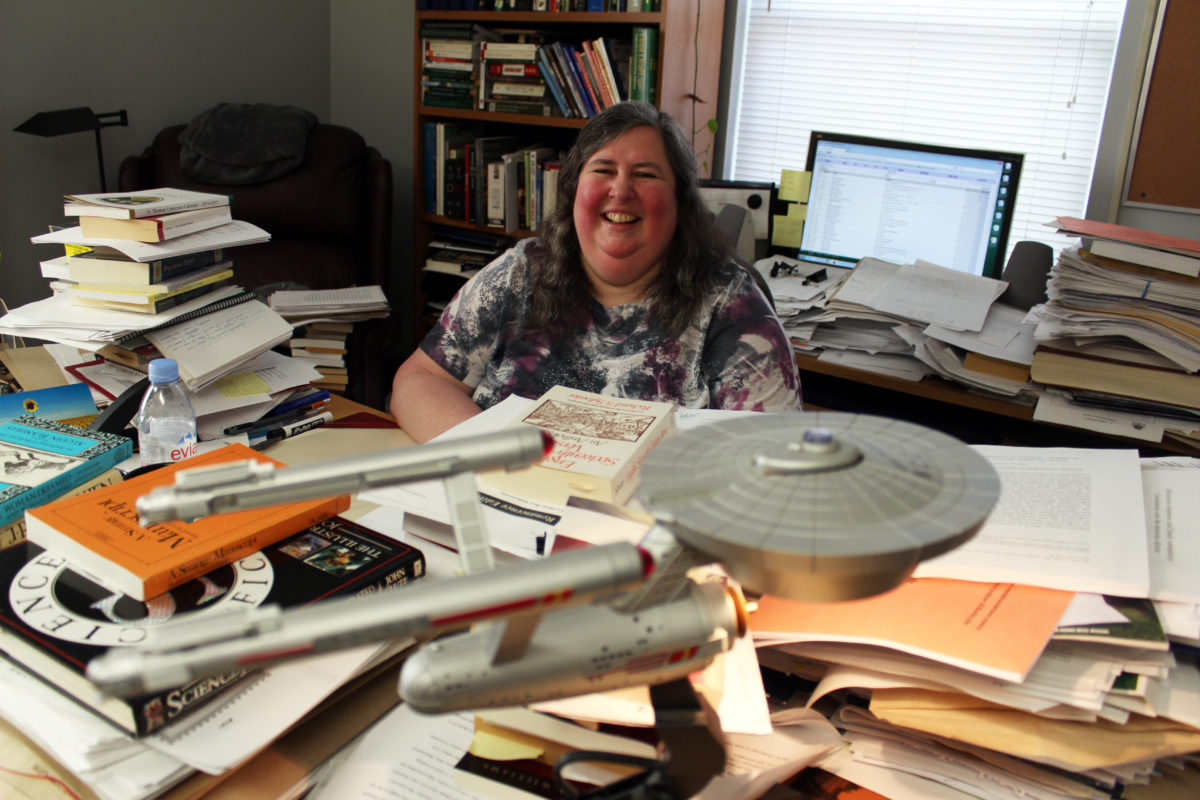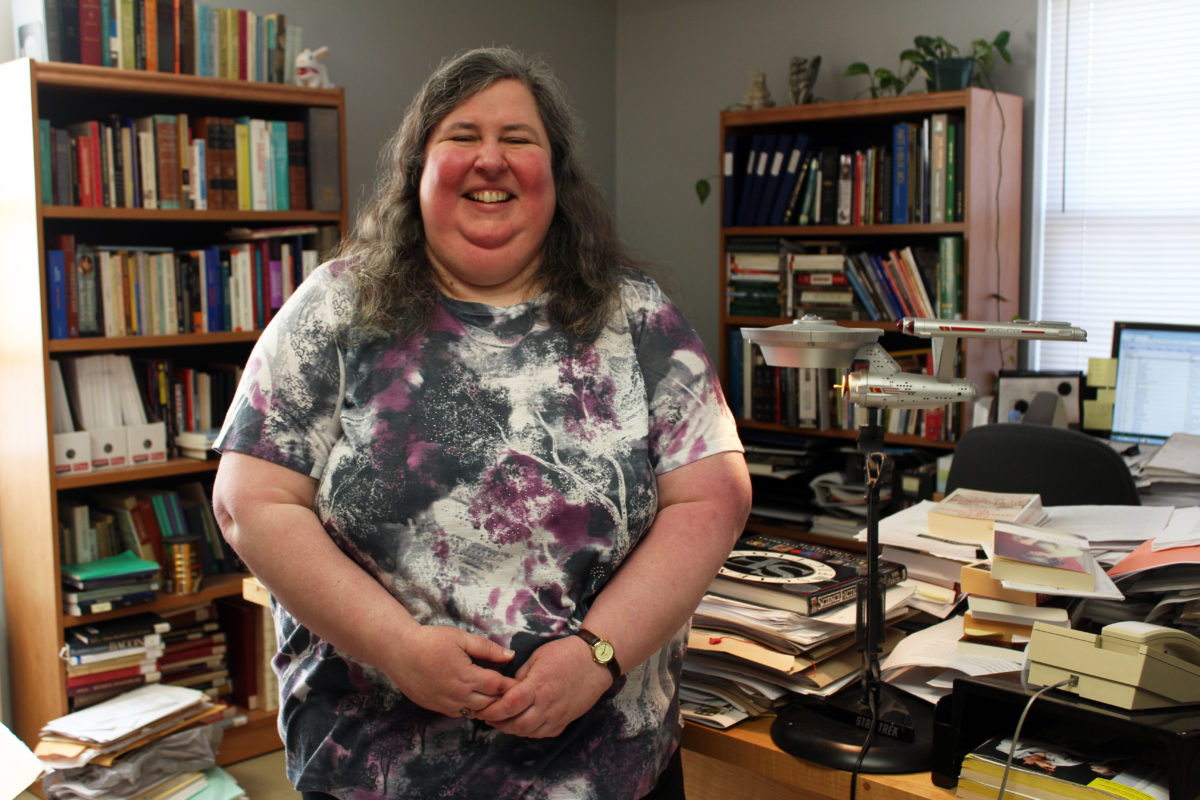Walking into Christine Cornell’s office is like walking through the wardrobe into Narnia. Her room is littered with detail. The more you look the more you discover. Gandalf and Frodo are on the wall beside her desk; they’re on the bookcase behind you too. The killer rabbit from Monty Python’s Holy Grail stands guard. Beside a miniature Gondor on her desk sits the real Holy Grail of this office: the desk lamp is the USS Enterprise from Star Trek.

Welcome to the coolest office on campus.
But Cornell lives up to her office. She knows her nerd history. She has met one of the Doctor Who doctors and George R. R. Martin (before he wrote Game of Thrones). Pleasant and relaxed but always ready to laugh, Cornell teaches in the English and Great Ideas programs. On top of traditional areas of study, Cornell teaches courses on comic books and manga, as well as a seminar on the “Inklings” (the group of writers from the ’30s and ‘40s that include Tolkien and C.S. Lewis). At St. Thomas for more than 15 years now, she’s convinced the nerdy has a place with the wordy in the classroom.
“These are genres that we are still in the process of seeing what they can actually produce. If you look around you go, ‘Okay, the novel is still doing really well, but the question is, the novel hasn’t always existed, what’s the next big genre to come?’” Cornell said. “Certainly most universities introduced film thinking that’s the place interesting, serious, thoughtful things were going to happen. I’d make the same case for graphic novels and comics.”
She believes the same for video games.
The other reason she teaches these works is students are actually reading those materials and studying them provides a chance to look at those texts in detail.

Cornell remembers when she was 11 or 12 watching re-runs of the original Star Trek. Something about it left her awestruck.
“The way it could play with very different ideas from one episode to the next. The role of technology in one episode, aliens in other episode, it just seemed to me, compared to other shows, you never knew where you were going to end up.”
She now considers some later episodes of Star Trek: The Next Generation as modern classics. But her first introduction into the nerd world was through comics. She inherited her father’s comic collection, mostly Western cowboy stories. She’s been reading them as long as she can remember.
Cornell remembers few strong female roles she could latch onto in the early days of comics, but Dale Evans was one cowgirl who meant business. Evans was an early image of a heroic female character Cornell could identify with. She even had her own horse.
Cornell teaches about female roles in her comic book and manga class. She’s always been interested in the topic, but when growing up, Cornell didn’t see the portrayals as being necessarily sexist.
“It’s kind of hard to see now, but characters like Uhura back then were cool. It was like, ‘Wow, there’s a woman on the bridge of the Enterprise. That’s great.’ And now we see, ‘Oh, they were made to wear short skirts’, and we see everything wrong with it now. At the time it wasn’t wrong, it was like, ‘Women are a part of the story and that’s cool,’” Cornell said.
She loves teaching the comic book and manga class though. The students come with a variety of tastes and Cornell is even inclined to go back and read some Archie comics because of praise her students give the series.
Still, she doesn’t understand the stigma around manga and graphic novels.
“We have this weird prejudice that images and words are okay when you’re a child, but then you should grow out of it. Why? The two go together in really interesting ways,” Cornell said.
But it’s more than just graphic novels and comic books, Cornell is an ambassador for all things cool and nerdy. She loves the classics (the other half of her bookshelves that aren’t comics and Tolkien are Shakespeare, Aristotle, and Machiavelli), but she wants the public opinion on these newer works to change.
“[It’s] getting over assumptions that … something belongs to a certain genre, and instead actually evaluating something on its own merits, whether there are ideas there that are worth taking seriously,” Cornell said. “And whether, as a work of art, it accomplishes something.”
